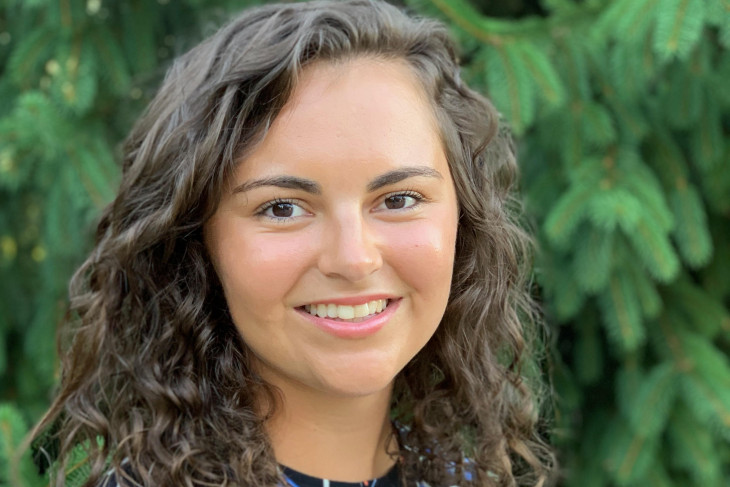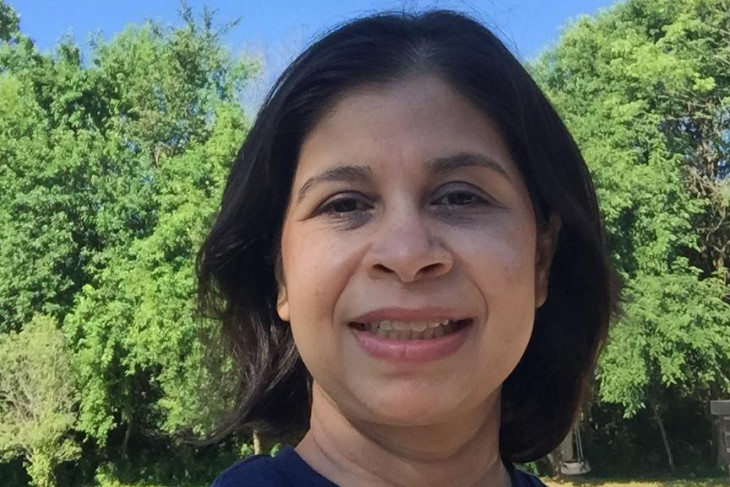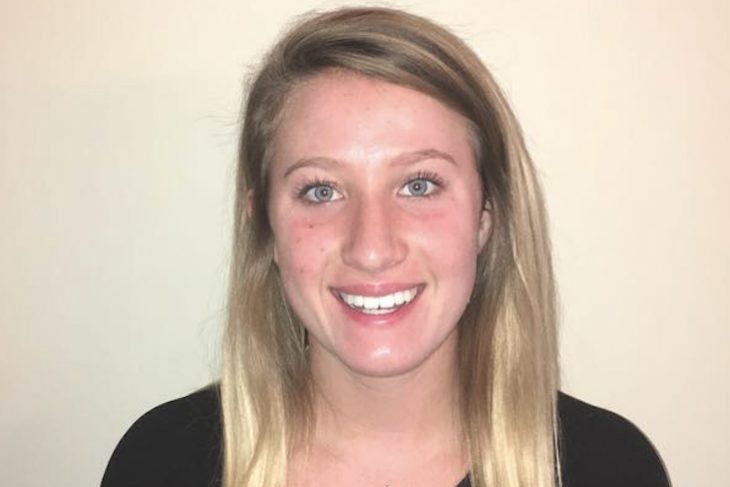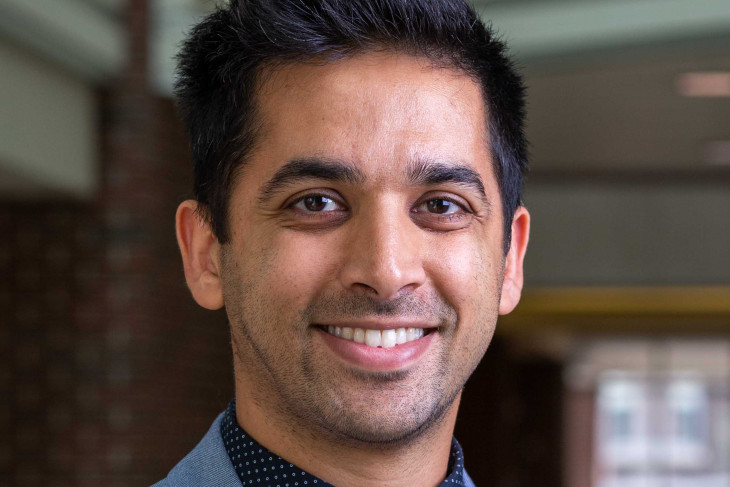COVID-19 has been playing havoc with the health of people and the economy. But it also has presented opportunities to two DePauw rising juniors to conduct research about the global disease.
Biochemistry major Kate Stanley and biology major Molly Ruggles are both on the pre-med track, with plans to attend medical school and become physicians.
Stanley is studying with Naima Shifa, associate professor of mathematics, to identify why COVID-19 disproportionately strikes and kills people in minority populations, especially Black and Hispanic/Latinx people. Her goal is less to verify that already well-established fact, but rather to delve into nuances of the issue in ways that will inform policymakers whose job is to address them.


“It’s not really a secret that a lot of these disparities have existed for a long time,” said Stanley, a Rector scholar from Lebanon, Indiana. “I just think that COVID kind of rips the Band-Aid off some of the ways we’ve covered up that look at that. It just makes it all the more real because you think about people dying from diabetes or obesity and everybody knows that. But because COVID is new, it just brings those health disparities to the surface. It had a shock value to it that brings up the conversation.”
Stanley has mined data from a variety of sources, drilling down to identify disparities by ZIP code in cities where major outbreaks have occurred. In addition to demographic information – race, sex and age – she has collected data on educational attainment, median income, unemployment, labor force participation, home ownership, health, access to health care, food insecurity and food deserts, exercise opportunities and more.
“It’s important to do this research because it’s important that policymakers address these disparities,” Stanley said. “… Perhaps if we are able to identify the variables that lie behind disparity in this virus, then we will be able to inform policy on how to best address the pandemic and its effect on minority groups.”
Ruggles, who is from Westfield, Indiana, is studying with Nipun Chopra, assistant biology professor and a 2006 DePauw graduate. The recipient of Holton and Zeuthen scholarships at DePauw is seeking a way to inhibit ACE2 receptors, a protein that provides an entry point for COVID-19 to infect a wide variety of cells.


ACE2 receptors perform important functions, such as regulating blood pressure, so the goal is not to eliminate them, Ruggles said. She is using three websites designed to identify microRNAs with the potential to target the ACE2 protein. So far she has identified 59 such RNAs.
Nor is inhibiting ACE2 receptors likely the most efficacious approach to battling COVID-19, largely because it is difficult to deliver microRNAs in the body, her professor said. But “it’s always nice to have a backup plan,” Ruggles said. “It’s also good just to expand our knowledge for future instances.”
Said Chopra: “Our focus is not to worry about delivery in the clinic. Our focus is to find the microRNA that someone else will eventually, someday, use in the clinic. There are over 3,000 microRNAs. Our goal is to figure out which one or two or three will target ACE2.”
Both students are science research fellows, enabling them to collaborate one-on-one with a faculty member on a summer research project. They connect remotely with their professors, sometimes several times a day.
“Professor Shifa has taught me so much already,” Stanley said. “I feel very fortunate that my research even got to happen this summer because most people’s was cancelled. I think I was the only biochem major who picked math research, but it worked out.”
Shifa said that Stanley “is a wonderful, wonderful young lady. She is a great learner. She is one of the most hard-working students I have ever had.”
Stanley and Shifa plan to co-author a paper on the research and submit it to a scientific journal.
Ruggles hopes that, by the end of summer, she will have identified a potential microRNA that she can then test in the laboratory.
“The remote learning actually was beneficial in this certain scenario because, in the first half of research, we were just reading articles and learning all about coronavirus and then we were learning about the history of coronavirus; we were learning about the ACE2 protein,” she said. “We took a week about microRNA. So we were able to slowly learn a pretty in-depth knowledge about each of these things in order for my mind to wrap around it.”
(Another student, Yangjie Tan ’21, has been studying microRNA this summer as it relates to traumatic brain injury.)
Chopra said that, in summer research, a student “is in the driving seat and can take control – or derail – the project. It can be a difficult lesson and a challenging burden for some students. Molly has risen to the challenge and succeeded. She’s driving the project and coming up with new ideas every day. It’s been fantastic to watch.”
Browse other stories
-
Athletics
-
Football - 336 Students Named to 2025 Spring Tiger Pride Honor Roll
-
Football - DePauw-Record 190 Student-Athletes Named to NCAC's Dr. Gordon Collins Scholar-Athlete Honor Roll
-
Football - DePauw Unveils 2025 Athletics Hall of Fame Class
More Athletics
-
-
News
-
Outstanding scholars named to Spring 2025 Dean's List
-
Alumni News Roundup - June 6, 2025
-
Transition and Transformation: Inside the First-Year Experience
More News
-
-
People & Profiles
-
11 alums make list of influential Hoosiers
-
DePauw welcomes Dr. Manal Shalaby as Fulbright Scholar-in-Residence
-
DePauw Names New Vice President for Communications and Strategy and Chief of Staff
More People & Profiles
-
-
Have a story idea?
Whether we are writing about the intellectual challenge of our classrooms, a campus life that builds leadership, incredible faculty achievements or the seemingly endless stories of alumni success, we think DePauw has some fun stories to tell.
-
Communications & Marketing
101 E. Seminary St.
Greencastle, IN, 46135-0037
communicate@depauw.eduNews and Media
-
News media: For help with a story, contact:
Bob Weaver, Senior Director of Communications.
bobweaver@depauw.edu.